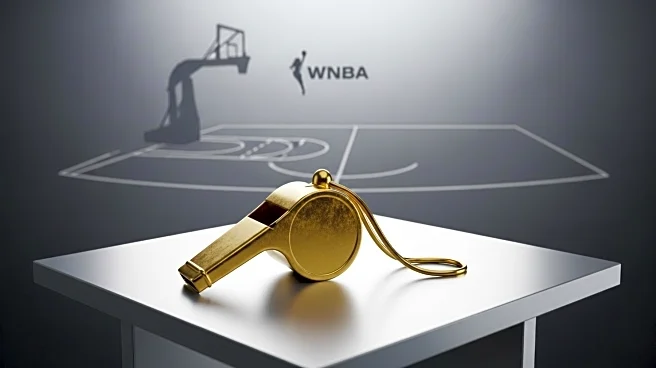What's Happening?
WNBA Commissioner Cathy Engelbert addressed the media before Game 1 of the WNBA Finals, responding to criticism from Lynx star Napheesa Collier. Collier had questioned Engelbert's leadership during Minnesota's exit interviews, claiming the league has the 'worst leadership in the world.' Engelbert denied making comments attributed to her about Caitlin Clark, stating there were inaccuracies in the reports. The commissioner acknowledged a disconnect between the league and its players, particularly concerning officiating and the ongoing collective bargaining agreement negotiations. Engelbert expressed her commitment to repairing the loss of trust and emphasized the importance of aligning the league's goals with those of the players.
Why It's Important?
The controversy highlights significant tensions within the WNBA, as players express dissatisfaction with leadership and officiating. The league is negotiating a new collective bargaining agreement, which could impact player salaries and benefits. Engelbert's leadership is under scrutiny, and her ability to address player concerns is crucial for maintaining league stability. The WNBA's recent media rights deals and expansion plans underscore the need for effective leadership to ensure long-term viability. The outcome of these negotiations could affect the league's growth and its ability to attract and retain top talent.
What's Next?
Engelbert plans to meet with Collier and other players to address their concerns. The league is also evaluating officiating standards and player safety, with a competition committee set to review game rules after the season. A new collective bargaining agreement is being negotiated, with meetings scheduled for next week and a deadline of October 31. The league aims to reach a deal that balances salary increases with long-term viability. The expansion draft for new teams in Toronto and Portland is also on the horizon, adding complexity to the league's future planning.
Beyond the Headlines
The WNBA's challenges reflect broader issues in professional sports, where player empowerment and leadership accountability are increasingly prominent. The league's ability to navigate these challenges could set a precedent for other sports organizations facing similar dynamics. The focus on officiating and player safety highlights the evolving nature of the game and the need for adaptive governance. The expansion plans indicate growth potential, but also require careful management to ensure sustainable development.









